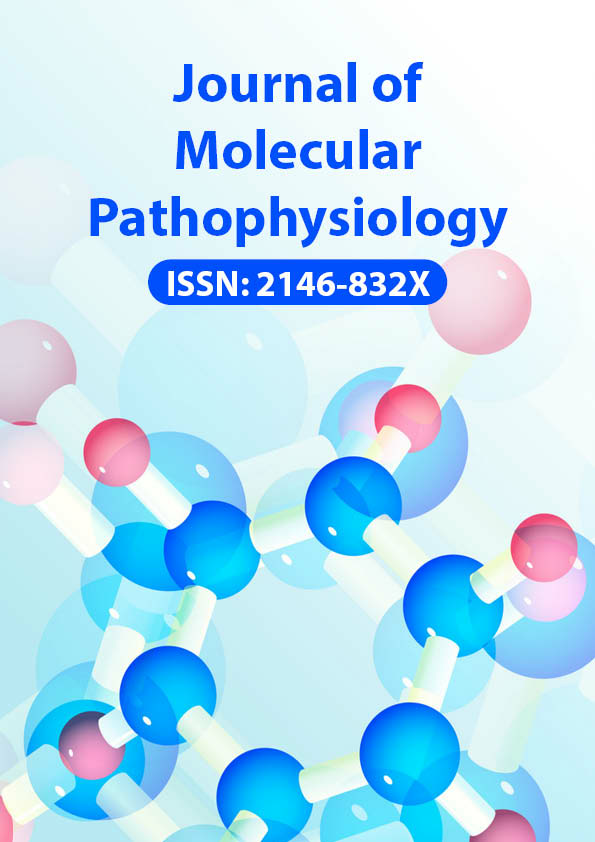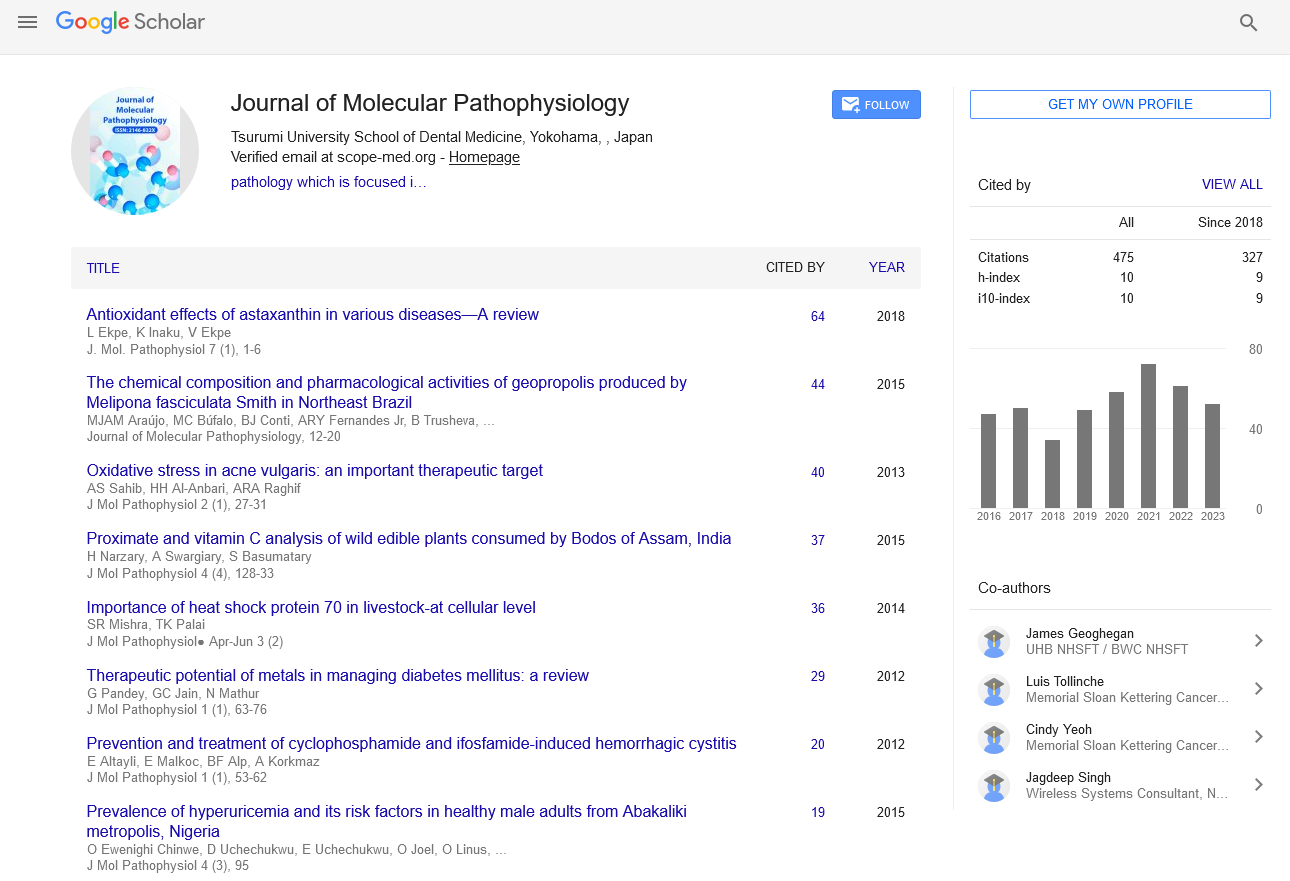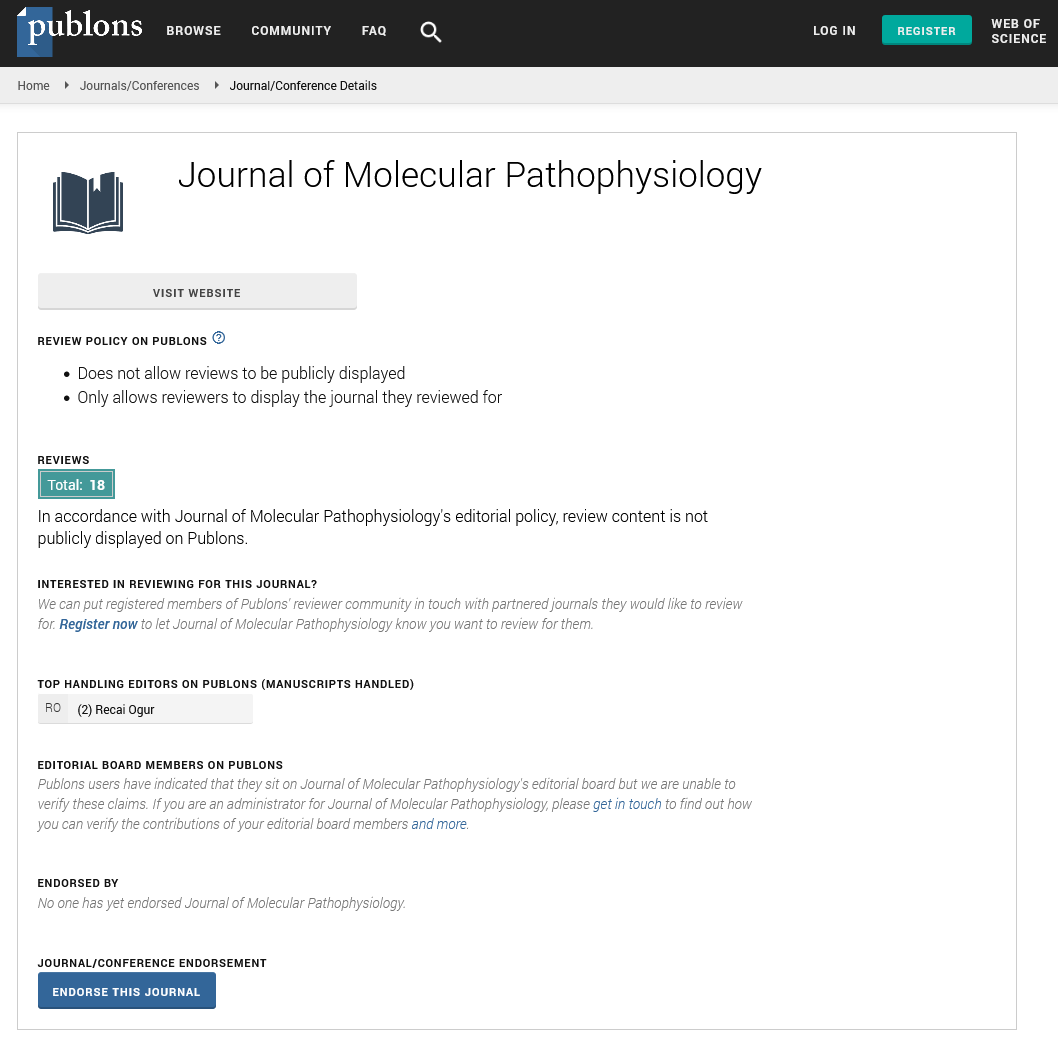Growth Rate, Haematologic and Atherogenic Indicators of Wistar Rats Fed with Raw and Processed Cocoa Bean-Based Beverages
Abstract
Chiedozie O Ibegbulem, Paul C Chikezie, Ezeikel C Dike
Background and Aim: The present study proposed that feeding experimental rats with processed cocoa bean-based beverages (PCB-BB) - and raw cocoa bean powder (RCBP) - containing diets could affect growth rate and probably, perturb blood homeostatic indices. Materials and Methods: The rat groups were designated on the basis of diets received for 28 days. The PCB-BB and RCBP were compounded separately with pelletized standard guinea feed (PSGF) (ratio 10:1 w/w) to obtain the experimental diets, whereas the control diet was composed of PSGF only. At the end of the feeding period, 12-hour post-fasted rat groups were measured for anthropometric indices before drawn blood samples were measured for haematologic parameters and serum lipid profile. Results: The weight gained by the rat groups ranged between 46.80±1.61 g and 53.83±1.87 g. Haematologic indicators of the rat groups were within relatively narrow ranges. Serum HDL-C concentrations of the rat groups were within the range of 0.7±0.2 mmol/L - 1.9±0.5 mmol/L. Serum VLDL-C concentrations of control and test groups showed no significant difference (p > 0.05). Conclusions: The comparable weight gained by the test rat groups was an indication that PCB-BB - and RCBP - containing diets met the minimum nutritional requirements for normal growth rate. Additionally, the consumption of the experimental diets did not elicit alterations in blood indicators that could have suggested the presence of systemic infections in the rats. Finally, the atherogenic indicators appeared to suggest that the consumption of PCB-BB - and RCBP - containing diets did not arrest atherogenesis following short-term feeding of the rats.
PDF






